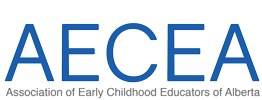Helping children work through adverse childhood experiences (ACEs) is difficult but important work because they can have lifelong effects on mental, physical, and relationship health. This workshop provides a deeper understanding of trauma's effects on a child's brain and teaches practical strategies for supporting children and their caregivers. You will discover how to identify ACEs, recognize their signs and symptoms, and learn preventative strategies for counteracting their negative effects. This workshop explores common ACEs, attachment theory, and strategies for supporting children and their caregivers. Join us and equip yourself with the tools you need to make a positive impact on the lives of children and families affected by ACEs.
Learning Objectives
Upon completion, participants should be able to:
- Define adverse childhood experiences
- Describe the impact of trauma on a child’s brain
- List the signs and symptoms of the effects of ACEs
- Identify the impact of ACEs on the community, the family, and the individual
- Describe and implement preventative strategies to counteract the negative effects of ACEs
- Apply various strategies to intervene and support children and caregivers
Some of the Topics Included
- Definitions for Trauma and Adverse Childhood Experiences
- Overview of Child Development
- Impact of Trauma on a Child’s Brain
- List of Common Adverse Childhood Experiences
- Overview of Attachment Theory
- Racism, Bullying, Emerging Sexuality
- Impact of Immigration
- Strategies for Supporting Children and Their Caregivers
- Resiliency Factors
- Provision of Supporting Resources
Target Audience
This is an introductory-intermediate level workshop intended for school personnel, social service and health care professionals, counsellors, social workers, and anyone working with children ages 0-12 and their caregivers.
Location:
Online
Date & Time:
June 12, 2024 8:00 a.m.-3:00 p.m. MST
For more information and to register, go here.
AECEA Professional and Student members get 15% off public workshops through the Crisis and Trauma Resource Institute (CTRI), log in to your account for the discount code!
